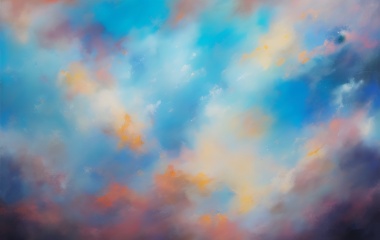
As a teacher one of my favorite parts of my work is parent teacher meetings. I (usually) find it most interesting talking to parents in general and hearing the comments their children have told them in particular. Yet one of the most frustrating comments for me to have to say and for a parent to hear is that “Chaim is very bright, and a good student - when he wants to be. He could achieve much better results if he only put in more consistent effort.”
Yet it is not only students who often fail to reach their potential. Whether due to lack of interest, to competing interests, or to the pressures of daily life we often fail to accomplish what we could if we only put our minds and efforts to do so. While we may often chide our children for not putting in their best efforts how many of us chide ourselves for doing the same thing?
We may find some comfort in a rather startling statement as the Talmud ‘sings the praises’ of a generation of scholars. “Isi ben Yehuda would count the praises of the Sages: Rav Meir [is] wise and a sofer.” (Gittin 67a) Praising someone as wise is most understandable, as a sofer, a scribe, less so.
On its most basic level a sofer is a most necessary yet underappreciated aspect of Jewish life. It is the sofer who provides our Torah scrolls, tefllin, mezuzot, megillot, even our bills of divorce. It is a task requiring great precision, attention to the minutest of details, offers little opportunity for creativity and intellectual exercise - after all one must copy exactly an extant text. One works alone without fanfare or opportunity for advancement and the pay is modest at best. “Rabbi Yehoshua ben Levi said: 24 fasts did the Men of the Great Assembly fast so that those who write sefarim, teflllin and mezuzot do not become wealthy for if they were to become wealthy they would no longer write.” (Pesachim 50b). Being a sofer requires such effort that without the need for money few would involve themselves in such a task. There are better ways to spend a sunny afternoon than by writing a mezuzah.
While undoubtedly many sofrim are quite intelligent I think it’s fair to say that we would not necessarily associate wisdom with being a sofer. And surely when we think of Rav Meir we think of someone who is a chacham (see for example Eiruvin 13b) but the fact that he may have been a sofer does not really enter our minds. Yet Isi ben Yehuda praises Rav Meir equally for his being both a chacham and a sofer. That ability for long hours of monotonous work thereby providing the community with our most basic religious needs is most worthy of praise.
This notion seemingly contrasts with Isi ben Yehuda’s rather startling “praise” of Rav Yehuda who was “chacham kseyirtzeh, wise when he wants to be.” In fact this does not seem like praise at all, as Chaim's parents would surely note. Interestingly neither Rashi or Tosafot seemed bothered by this. Rashi simply notes that when Rav Yehuda put his mind to it he displayed great wisdom. One can be impressed by great displays of wisdom regardless of whether such wisdom is consistently applied.
Perhaps Isi ben Yehuda was challenging Rav Yehuda to reach his potential. As Tosafot points out he may have even surpassed Rav Meir in wisdom and instead of berating him, Isi ben Yehuda, like a good motivational speaker hoped to inspire him so that he would “want” to be wise at all times.
Yet at the same time there is nothing that frustrates a coach (is that not what teaching is all about?) more than seeing talent not used, especially when it appears it is due to lack of effort. As Isi ben Yehuda is “listing their praises” and not their potential there seems little to praise with Rav Yehuda. So much so that some want to claim that the word “k’sheyirtzeh, when he wants,” was a scribal error mistakenly added at some later point and is not part of the original teaching.
Isi ben Yehuda is praising both Rav Meir and Rav Yehuda for their wisdom but as the Tosafists point out there are two types of wisdom. Rav Meir was charif umakseh, sharp and questioning, whereas Rav Yehuda was matun and masik, slow and deliberate, lacking the sharpness of Rav Meir but able to reach definitive conclusions about the law and move on[1]. The Gemara (Eiruvin 13b) records that there were none greater than Rav Meir who had the ability to “declare the unclean clean and clean unclean.” It was because he was so great that others could not comprehend his brilliance and thus in practice his halachic views were rejected.
However the Mahratz Chajes [2] offers a fascinating and all too true interpretation, one that is faithful to the text[3] before us. “We all know from experience” he writes “that even the most complete person in every measure is incapable at every moment of wisdom, thinking and not all times are equal. And when a person is in pain, or angry or in the midst of poverty or anger or jealousy overtook him [yes these things happen even to the greatest of Torah scholars] behold during those times one is unable to delve into knowledge.”
Rav Yehuda was the exception that proved the rule. He was able “whenever he wanted” to be wise. He was able to master his emotions, to be unaffected by distractions. He was beyond mentally tough. To be able to do what you want when you want is the greatest of praises, so great that as the Mahratz Chajes concludes “this is such a very great thing we do not find even one amongst 600,000 who can glory that he is able at each and every moment to enter the inner sanctum of Torah”.
Fortunate are those with the mental toughness who are able to seek wisdom most of the time.
[1] The “difficulty” in being so sharp is the crux of the story told that Rav Chaim Soloveitchik in posing a halachic query to Rav Yitzchak Elchanan Spector asked for a yes or no answer. He knew that he could question and refute any arguments that would have been provided.
[2] The Mahratz Chajes was one of the most fascinating and colorful figures of the past 200 years. His commentary to the Talmud appears in the back of the Vilna Shas (the Talmud that has nearly 100% acceptance) and at the same time this scholar could be classified as a “frum maskil”, conversant with and supportive of many of the reforms advocated by the Haskalah. His writings are wide ranging, covering topics no other rabbinic figure of his age (and many others) covered. For those with some spare times on their hands you may want to read the Ph.D thesis of Dr. Bruria Hutner David on the Mahartz Chajes here. For those who prefer Hebrew reading I highly recommend the two-volume work Kol Kitvei Mahartz Chajes.
[3] Scribal errors - especially of texts before the printing press - are a common problem which scholars both traditional i.e. the Vilna Gaon and not, have worked hard to eliminate. However this idea it is often misused and misapplied. When faced with a text that goes against our pre-conceived notions some will argue, without any evidence, that such was never said and was put there mistakenly by a printer or an errant student.



